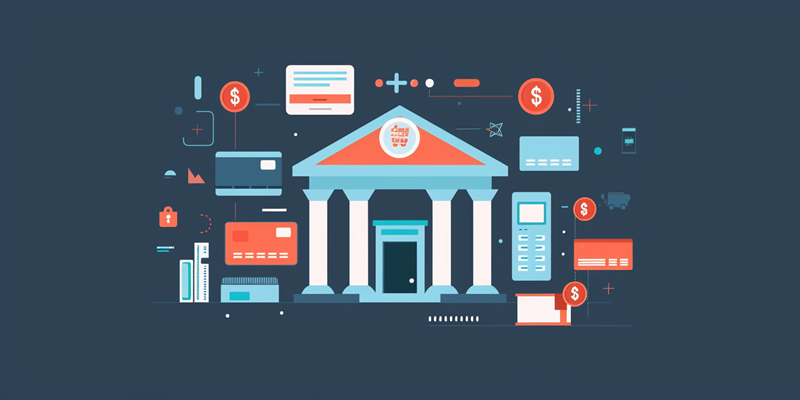In the age of rapid technological advancements, the banking sector stands poised for a monumental shift as generative artificial intelligence (AI) takes center stage. This state-of-the-art technology, capable of processing extensive datasets to generate content, has the potential to dramatically alter how customers interact with financial services. Banks, as we know them, may soon face a reality where AI not only augments but also automates many of their core functions. With benefits to consumers such as enhanced financial product offerings and better rates, the adoption of generative AI could signify a golden age of convenience and efficiency. However, this new era is also clouded by challenges surrounding consumer trust, the potential for financial instability, and navigating complex regulatory environments.
The AI Advantage in Modern Banking
The implementation of generative AI in the banking sector presents an intriguing proposition of efficiency and optimization. By harnessing the power of AI to process and analyze vast amounts of data, banks could offer personalized financial products and services, tailored to the individual needs of consumers. The dynamic nature of generative AI means it could continuously evaluate market conditions, ensuring the most advantageous outcomes for clients. This technology promises to enhance customer satisfaction by providing quicker, more accurate services while drastically reducing operational costs for banks. However, it’s not just about streamlining processes; AI’s influence could extend to overturning the fundamental ways in which banks operate, rendering traditional banking models obsolete.
Within this context, banks are confronted with an existential dilemma: adapt to the new AI-influenced paradigm or risk being left behind. The potential for AI bots to independently manage financial transactions suggests a future of autonomously optimized personal finances. This scenario raises questions about the very nature of banking, as AI becomes poised to disrupt traditional profit centers like net interest margins. The insights from investors and venture capitalists emphasize the magnitude of change AI could bring, challenging banks to rethink their strategies and embrace the rapidly emerging technological landscape.
Risks and Challenges in an AI-Driven Financial World
Integrating AI into finance comes with significant risks, chief among them the chance of financial instability. Algorithm-driven bots that optimize trades could cause sudden, massive capital shifts, disrupting the banking sector similarly to how social media can escalate bank runs. Such volatility challenges banks’ management of assets and liabilities, as AI whims could lead to unpredictable cash flow.
Moreover, meeting regulatory demands adds complexity to AI adoption in finance. Compliance with laws such as the Dodd-Frank Act, particularly regarding consumer data and open banking, is daunting. Even in Europe, where open banking and mandatory APIs have been introduced, full-scale transformation hasn’t taken root, indicating a possible disconnect between tech readiness and consumer adoption. In short, as banks harness AI, they must navigate the fine balance between innovation, stability, and regulatory compliance without compromising any.
Consumer Trust and the Generational Shift
At the intersection of AI and finance lies a bedrock issue—trust. Can AI garner the trust of consumers to such an extent that they would relinquish control of their financial decisions to autonomous systems? Experts suggest that generational factors may play a pivotal role, with younger, tech-native populations potentially more open to entrusting their financial futures to algorithms. This demographic, shaped by their experiences with financial crises and skepticism toward traditional banking institutions, might well become the early adopters of AI-powered financial services.
For small and medium-sized banks, the challenges of incorporating generative AI technologies come with steep price tags. These institutions may struggle to compete in an environment where such investments are crucial for survival. The question of equitable access to technological advancements looms large, with the potential for an uneven playing field where only well-resourced banks could afford the luxury of cutting-edge AI. Consequently, the industry may witness a power shift that could consolidate wealth and influence among the banking elite at the expense of smaller competitors.
Anticipating the AI-powered Horizon
The emergence of AI in banking brings both excitement and caution. Consumers relish the improved ease and speed it promises, but the implications for financial security are sobering. Banks are tasked with a delicate balance – integrating AI to enhance service while safeguarding the system and maintaining public trust. As generative AI rapidly evolves, banks must adopt it prudently, ensuring true advancement in financial safety and not just innovation for its own sake.
This is more than simply embracing the latest tech; it’s about weighing the repercussions and securing sustainable progress. Banking stands at a pivotal point, with generative AI offering a chance to revolutionize the sector. However, this opportunity must be approached with strategic insight, keeping a stable and reliable financial environment in focus. If properly managed, AI doesn’t only have the potential to transform banking but to significantly improve it.

